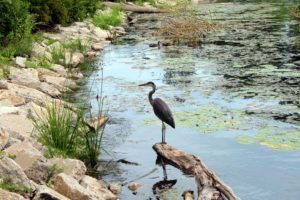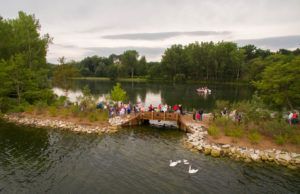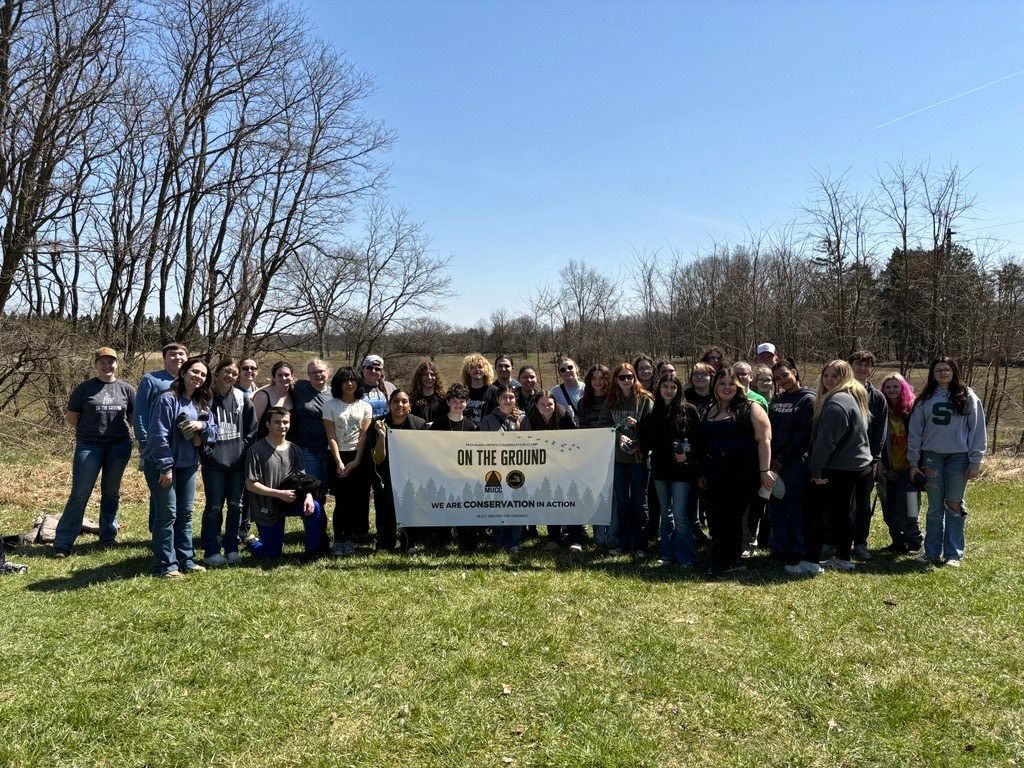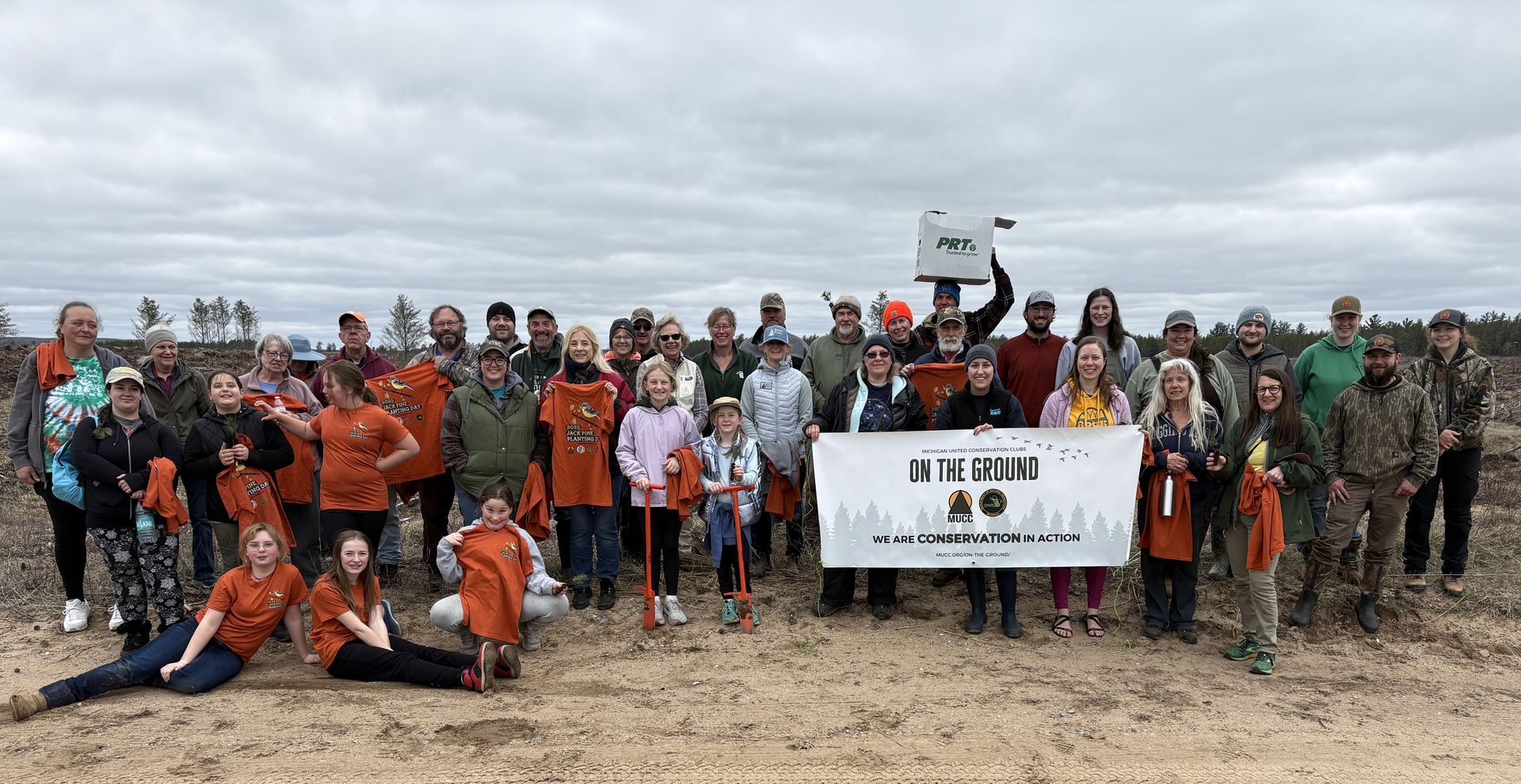Federal Funds Help Kick Start Shoreline Restoration on Lake St. Clair
There is some good news on the horizon for the shoreline of Lake St. Clair. Thanks to some new federal dollars the Ford House, the historic estate of Edsel and Eleanor Ford, is teaming up with the Great Lakes Commission (GLC) and the National Oceanic and Atmospheric Administration (NOAA) for a project to restore disappearing wildlife habitats along the shoreline of Ford Cove on Lake St. Clair. The goal of this project is to restore the shoreline to its natural state.
This project will cover roughly a mile of Lake St. Clair’s coastline and more than 17 acres of the surrounding coastal marsh, nearshore habitat and adjacent forested wetlands. The plan includes removing features like broken concrete and seawalls and reintroducing native plant species and softer shorelines. This will reduce the heavy waves that disrupt vital habitats for wildlife.

The project begins this spring with an initial feasibility study to evaluate the plan put together by Ford House and the GLC, along with the Michigan Department of Natural Resources Fisheries Division, and Macomb County’s Planning and Economic Development Department, Parks and Natural Resources Division. The project team selected Michigan-based community advancement firm OHM Advisors to execute the study, lasting about 18 months.
Ford Cove presents a uniquely ideal location for a shoreline restoration of this scale, as a large swath of continuous shoreline privately owned by Ford House. With more than 200 species of birds who use the area, the planting of native plants and shoreline restoration will be a great addition to help wildlife populations.
The feasibility study, will include detailed baseline chemical, geotechnical, and ecological evaluations, preliminary hydrologic and hydraulic modeling and produce conceptual plans with estimated costs and restoration recommendations. These measures will determine if the plan will be able to effectively reach its restoration goals.

The cost of the feasibility study is $230,634, including a $3,000 in-kind match from Ford House.
Funding for this project comes from the Great Lakes Restoration Initiative through a regional partnership between NOAA and the GLC. A project management team provides input and guidance on the project and includes members from the GLC, Ford House, NOAA, Macomb County, the Michigan Department of Natural Resources Fisheries Division, and the Michigan Department of Environment, Great Lakes, and Energy .
This release was adopted from the official Ford House release. For more information please reach out to Ford House Communications & Media Specialist Sarah Kornacki skornacki@fordhouse.org
The post Federal Funds Help Kick Start Shoreline Restoration on Lake St. Clair appeared first on Michigan United Conservation Clubs.
Recent Posts



